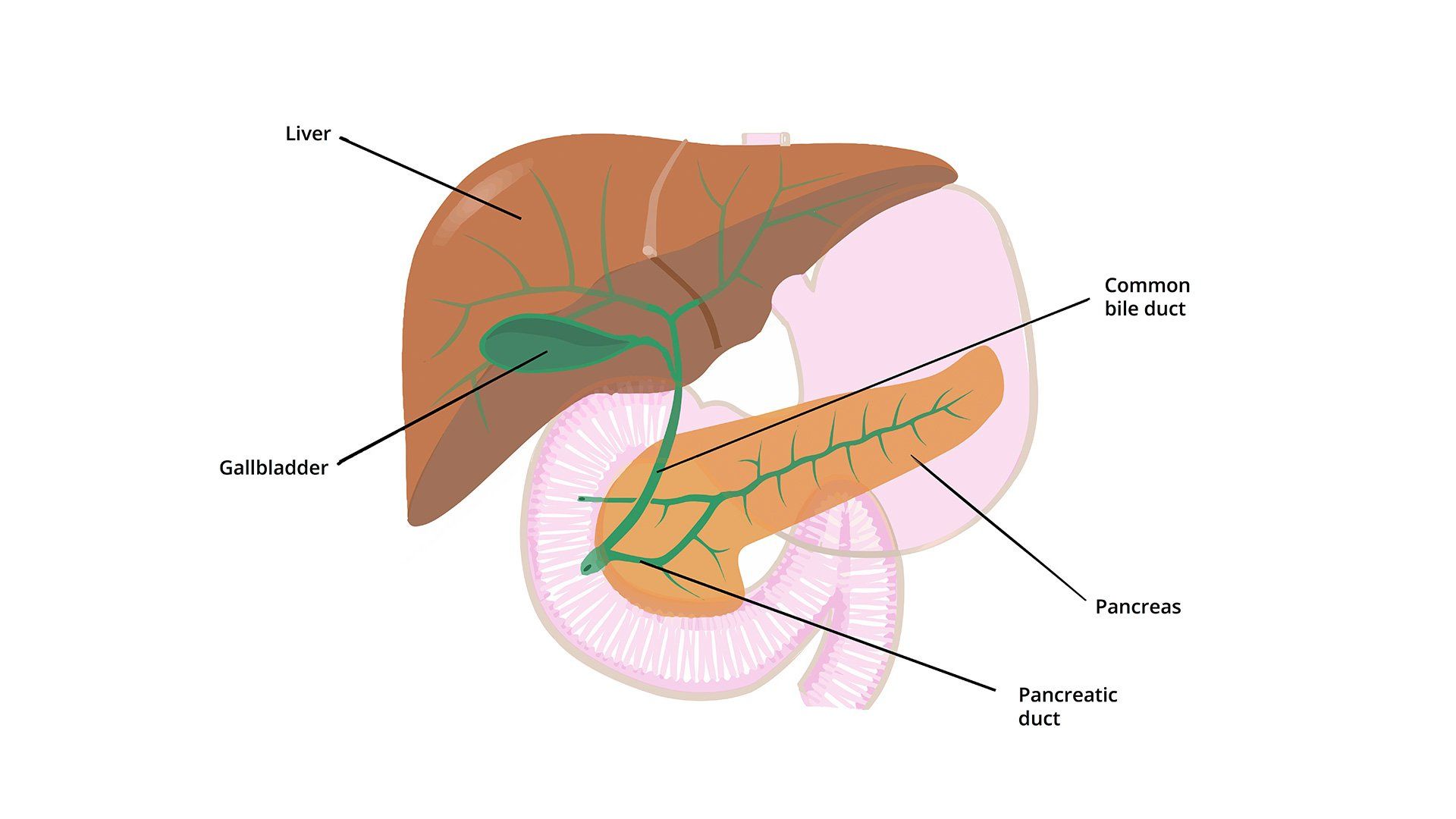Gallstones generally not dangerous but caution called for in certain cases
Drickus Maartens • February 14, 2020
As many as 20% of people worldwide may develop gallstones at some point in their lives and are usually not even aware of them, and in these circumstances these stones do not generally cause medical problems. In a few cases, however, gallstones may cause complications that could lead to life-threatening emergencies.
According to Dr Zain Ally, a surgeon who is subspecialised in hepatobiliary and gastrointestinal surgery and practises at Netcare Sunninghill Hospital in Johannesburg, gallstones do not commonly represent a serious threat to a person’s life. However, in up to 5% of cases, individuals develop large gallstones, or large numbers of gallstones, which may lead to episodes of considerable pain and discomfort. Where these gallstones block the biliary system, they may present a serious threat to the individual’s health.
What are gallstones?
Dr Ally explains that bile is a secretion that is continuously produced by the liver. The biliary system, or biliary tree, is a complex system within the liver that resembles a tree with multiple branches and one common trunk.
“Bile is continuously produced within the liver, excreted into the bile ducts and eventually secreted in the gut. Bile contains cholesterol and certain substrates, which aid in multiple digestive processes within the body. It also helps the body dispose of toxins and metabolic waste products.”
Gallstones are solid particles that form in the gallbladder and biliary tree from bile, cholesterol and bilirubin, a yellow substance in the blood, and can range in size from being as small as a grain of sand to as large as a golf ball.
“Cholesterol forms a major component of bile. As our own cholesterol levels increase with age due to sedentary lifestyle and poor diet, so does the cholesterol content in the blood, and therefore in the bile. Small crystals or stones form when the cholesterol in the bile solidifies over time, and these may grow larger over time.”
When can gallstones become dangerous?
“If gallstones block the outflow tract of the biliary system they may cause pancreatitis, a condition leading to inflammation in and around the pancreas, or obstructive jaundice. If left untreated, either of these conditions may result in severe and potentially fatal complications. A blockage of bile flow may quickly impact other organ systems negatively,” warns Dr Ally.
He notes that such a blockage is known as ‘obstructive jaundice’, as yellowing of the skin and the eyes will result once normal bile flow from the liver to the small intestine is blocked. This may occur together with itching, easy bruising, the passing of pale coloured stools and very dark urine.
How do you know that you may have gallstones?
“The most common symptom is a colicky pain in the upper right part of the abdomen from time to time soon after a meal. This is caused by a temporary blockage of bile exiting the gallbladder. The small stone/blockage is usually cleared through muscular contractions, and the pain therefore settles within a few hours.
“If this blockage continues, a more severe inflammatory response is likely to occur within the gallbladder itself as its own blood supply and drainage becomes blocked. This is characterised by intense pain in the right upper abdomen, which does not improve spontaneously. This condition can progress to gangrene of the gallbladder within a few days,” cautions Dr Ally.
He further cautions that the kidneys, brain, blood and cardiovascular system are all affected by a lack of bile. Once the flow of bile is obstructed, the biliary system comes under pressure and is susceptible to multiple infections, which can lead to organ failure.
Are you at risk of developing gallstones?
Dr Ally says there are a number of possible risk factors for the development of gallstones. These include:
- Women are at greater risk of developing gallstones, particularly if they have been pregnant, are taking birth control pills, or are on hormone therapy
- Being overweight together with a lack of exercise
- Diabetes mellitus
- Age, with individuals over the age of 40 being at greater risk
- Family history
- Rapid weight loss
- Frequent fasting and dieting.
It should be noted that while women are at higher risk of developing gallstones, men and the elderly are more likely to experience more serious complications from them.
Can gallstones be successfully treated?
Dr Ally advises people to seek medical care if they experience abdominal pain that cannot be relieved by over-the-counter medications, along with a fever, chills, vomiting and/or jaundice.
People who do not experience symptoms will not require treatment. That being said, once ‘silent’ gallstones begin causing symptoms they usually do not abate. Once gallstones have been documented to cause symptoms, ‘attacks’ or severe disease, the current international recommendation is to have the gallbladder removed surgically.
“The surgical removal of the gallbladder, referred to in medical terms as a cholecystectomy, is key to medically managing gallstones. Nowadays, minimally invasive surgery guided by means of a laparoscope, are generally performed which results in minimal downtime and discomfort for patients. Minimally invasive procedures can be used to access and visualise the biliary system, biopsy the blockages, extract the gallstones, and insert stents to restore normal biliary and organ function and alleviate jaundice.
“This procedure is not used for gallstones that have passed outside of the gallbladder, or stones that have formed outside of the gallbladder in the biliary system, which occurs in 20% of cases. These types of stones are best dealt with by a hepatobiliary [HPB] surgeon who has sub-specialised in the management of complicated biliary, pancreatic and liver diseases,” Dr Ally concludes.













